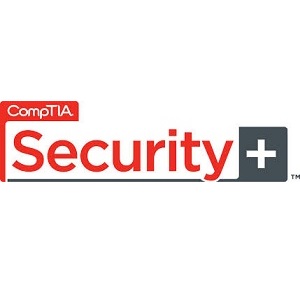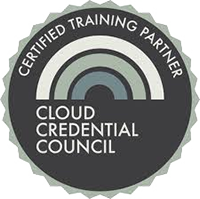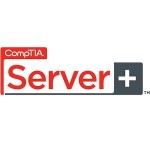Description
CompTIA Security+ Support Skills course is intended for professionals who want to qualify with CompTIA Security+ Certification. CompTIA Security+ validates knowledge of communication security, infrastructure security, cryptography, operational security, and general security concepts.
“The CompTIA Security+ exam will certify that the successful candidate has the knowledge and skills required to identify risks and participate in risk mitigation activities, provide infrastructure, application, operational and information security, apply security controls to maintain confidentiality, integrity and availability, identify appropriate technologies and products, and operate with an awareness of applicable policies, laws and regulations.” – CompTIA Security+ Syllabus
This 5-day, hands-on course is designed to prepare participants for the SY0-301 Security+ exam and teach the fundamental principles of installing and configuring computer and network security systems. This courseware bears the seal of CompTIA Approved Quality Content. The seal signifies that this content covers 100% of the exam objectives and implements important instructional design principles. CompTIA recommends multiple learning tools to help increase coverage of the learning objectives. The contents of this training material were created for the CompTIA Security+ Certification SY0-301 exam covering the 2011 Edition Security+ certification exam objectives.
AUDIENCE
This course is intended for professionals who want to qualify with CompTIA Security+. The qualification is aimed primarily at networking professionals, but because security is vital to all levels and job roles within an organization, it will also benefit PC support analysts, application developers, and senior managers in accounting, sales, product development, and marketing.
LEARNING OBJECTIVES
Individuals certified at this level have a demonstrated understanding of:
- Identifying network attack strategies and defenses.
- Understanding the principles of organizational security and the elements of effective security policies.
- Knowing the technologies and uses of encryption standards and products.
- Identifying network- and host-based security technologies and practices.
- Describing how remote access security is enforced.
- Describing the standards and products used to enforce security on web and communications technologies.
- Identifying strategies for ensuring business continuity, fault tolerance, and disaster recovery.
BENEFITS
Completing this course helps in pursuing a career in ICT security support, in job roles such as security architect, security engineer, security consultant/specialist, information assurance technician, security administrator, systems administrator, and network administrator. Study of the course can also help to prepare for vendor-specific technical support qualifications and act as groundwork for more advanced training.
PREREQUISITES
Ideally, participants have successfully completed CompTIA Network+ certification and have approximately 24 months’ experience in networking support. It is not necessary to pass the CompTIA Network+ exam before completing CompTIA Security+, but it is recommended. Regardless of whether participants have passed CompTIA Network+, it is recommended that they have the following skills and knowledge before starting this course:
- Know the function and basic features of the components of a PC.
- Use Windows to create and manage files and use basic administrative features (Explorer, Control Panel and Management Consoles).
- Basic network terminology (such as OSI Model, Topology, Ethernet, TCP/IP).
- TCP/IP addressing, core protocols, and troubleshooting tools.
COURSE MATERIALS
Participants will receive the following:
- A handbook.
- A reference book with materials pertaining to the training.
The course consists of two volumes: A study volume, containing indexed notes and review questions, and a companion volume, containing exam objectives mapping, exam information, practical labs, answers to review questions, and a comprehensive glossary. The course also comes with an online practice exam and links to Professor Messer online video tutorials.
ABOUT THE EXAMINATION
- The SY0-301 exam is closed-book format and is delivered by computer at an Authorized Prometric Testing Center.
- The exam consists of up to 100 multiple-choice and performance-based questions. Multiple-choice questions in CompTIA exams, ask candidates to select one or more correct answers to a specific question. Candidates click on the correct answer or answers. Performance-based questions require candidates to perform tasks or solve problems in simulated IT environments. For each performance-based question, the exam prompts candidates to perform specific tasks or solve specific problems. A simulated environment is then launched in which the candidate completes the required steps.
- The exam lasts 90 minutes.
- A minimum score of 750 on a scale of 100-900 is required to pass the exam. At the end of the exam, candidates will know whether they have been successful or not.
COURSE AGENDA
Day 1 / Security Fundamentals
- Security Concepts • Why is Security Important? • Security Controls • Identification and Authentication • Authorization • Accounting • Labs • VirtualBox
- Threats • Types and Sources of Threats • Social Engineering • Malware • Preventing Virus Infection • Labs • Trojans and Malware Protections
- Network Vulnerabilities • Network Fundamentals • Network Attack Strategies • Layer 2 Attacks • IP Spoofing and Hijacking • Denial of Service Attacks • Application Layer Attacks • Labs • Network Vulnerabilities
Day 2 / Network Security
- Penetration Testing • Vulnerability Assessments and Penetration Tests • Vulnerability Scanners • Honeypots and Honeynets • Labs • Vulnerability Scanning
- Secure Network Design • Secure Network Topologies • Network Device Exploitation • Switches and VLANs • Routers • Labs • Routing Protocols
- Security Appliances and Software • Firewalls • Proxy Servers and Gateways • Intrusion Detection Systems • Audit Logs • Labs • Firewalls and Intrusion Detection Systems
- Network Application Security • DHCP Security • DNS Security • SNMP Security • Labs • Attacks Against DHCP and DNS
Day 3 / Internet Security
- Cryptography • What is Cryptography? • Encryption Technologies • Cryptographic Attacks • Steganography • Labs • Steganography
- Public Key Infrastructure • What is PKI? • Implementing PKI • Cryptographic Standards • Labs • Configuring Certificate Services
- Securing Web Services • HTTP • SSL / TLS • Web Servers • Securing Web Applications • Web Browsers • File Transfer • Labs • HTTP and HTTPS • Web Application Vulnerabilities • Telnet, FTP, and SSH
Day 4 / Access Control
- Authentication • LAN Manager / NTLM • Kerberos • PAP and CHAP • Password Management Policy • Token-based Authentication • Biometric Authentication • Extensible Authentication Protocol (EAP) • Labs •Password Sniffing
- Authorization • Privilege Policies • Directory Services • Lightweight Directory Access Protocol (LDAP)
- Operating System Security • Computer Hardening • OS Hardening • Hardware and Software Updates • Network Access Control • Labs • Baseline Security Analyzer • Network Access Protection
- Remote Access Security • What is Remote Access? • Remote Connectivity Protocols • Remote Access Servers • Remote Administration Tools • Hardening Remote Access Infrastructure • Labs • VPNs
- Wireless Access Security • Wireless LAN Security • Bluetooth • Labs • War Driving
Day 5 / Organizational Security
- Site Security • Physical Access Controls • Environmental Security • Mobile Device Security • Telephony • Labs • Data Leakage Prevention
- Disaster Recovery and Business Continuity • Disaster Recovery Planning • Business Continuity and Risk Management • Fault Tolerance • Backup Strategies
- Incident Response and Forensics • Incident Response Policy• Forensic Investigations • Labs • Computer Forensic Tools
- Operational Security • Corporate Security Policy • Data Handling • HR Policies
Next Generation Networks • Virtualization Defined • Virtual Platform Applications • Virtualization Security and Best Practice • Cloud Computing • IPv4 versus IPv6 • Labs • Security Planning








